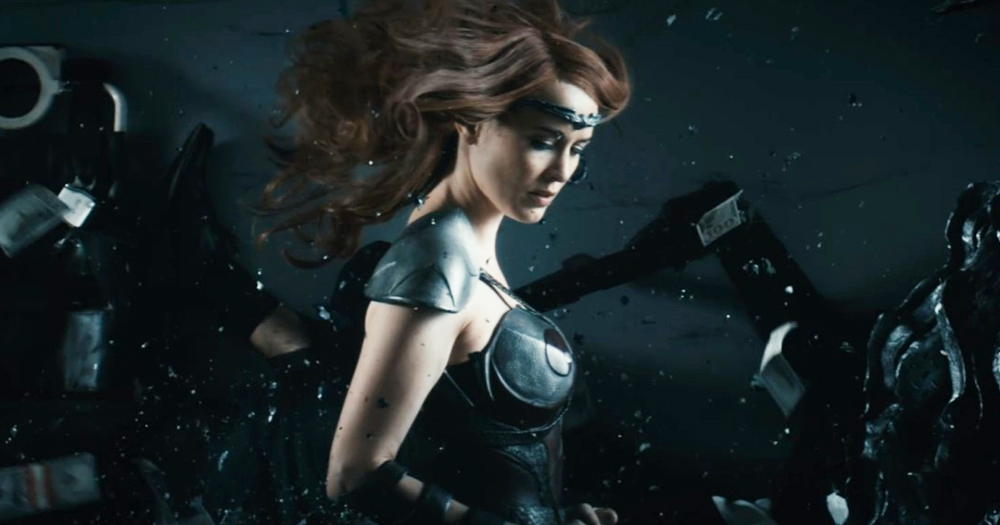The following contains spoilers for The Boys Season 2 Episode 5, We Gotta Go Now.
American superhero series The Boys called out the commodification of queer culture, bi-erasure, and tokenism in its latest episode.
Set in a universe where superpowered people are marketed to the masses, The Boys aired on Amazon Prime as a refreshing change from the multitude of superhero TV shows and movies. The first season was well received for its depiction of superhero group The Seven’s corruption and willingness to criticise what it means to be a ‘hero’.
The Boys Season 2’s latest episode was the show at its most satirical, working through several topics ranging from bi-erasure, superhero blockbusters, racism, the rise of the far-right, memes, scientology, and accountability. Though the first series oftentimes struggled with finding a balance between heavy gore and social commentary, its follow up has hit the ground running.
In The Boys’ first season, Queen Maeve (played by Dominique McElligott) was a character that felt pushed to the sidelines, usually going episodes without much dialogue. However, the follow up season has seen a much improved course correction, setting this Wonder Woman-esque figure up against the commodification of diversity.
Queen Maeve was revealed to have a past relationship with a woman named Elena (played by Nicola Correia-Damude) in season one, however the storyline trailed off near the end. Season two follows this up by highlighting that she is not only a bisexual character but also afraid of publicly coming out due to her abusive ex.
However, her ex and leader of the Seven, an Avengers/Justice League mashup, Homelander (played by Anthony Starr) takes a different approach than outright violence and outs Maeve as a lesbian on live television. Instead of harming her partner, he forces the superhero into a situation where she will be stripped of her agency and tokenised by the Vought company.
Once Maeve has been falsely outed, members of Vought quickly rewrite her public image as an out and proud woman. They declare, “Queen Maeve, a goddess, but our empress of the other world struggles inside. Questions of identity rock her to her core, until she meets Elena. The connection is immediate, all consuming, a sweet, sapphic love blossoms, raising Maeve’s consciousness and revealing her own inner truth. She’s gay, and it’s okay!”
When Elena raises the point that Maeve is bisexual, the team quickly shut her down. While numerous shows are currently telling great queer storylines, there has been a noticeable lack of bi representation, an attitude which is called out in The Boys when Vought’s vice president states “lesbian is an easier sell” and that it’s “more cut and dry” for the general public.
Public perception has been a consistent theme throughout the show, highlighting the means by which people can be moved from one cause to another. This also plays a role in how Vought demands Elena dress in a masculine sense, as they state, “Research has shown that two feminine women in a relationship sends a problematic message. Americans are more accepting of gays when they’re in a clear cut gender role relationship, like Ellen and Portia.”
Against a backdrop where companies are being called out for their eagerness to engage with Pride month while also remaining silent on LGBT+ issues the rest of the year, The Boys captures the frustration and harm caused by these tokenistic gestures.
© 2020 GCN (Gay Community News). All rights reserved.
Support GCN
GCN is a free, vital resource for Ireland’s LGBTQ+ community since 1988.
GCN is a trading name of National LGBT Federation CLG, a registered charity - Charity Number: 20034580.
GCN relies on the generous support of the community and allies to sustain the crucial work that we do. Producing GCN is costly, and, in an industry which has been hugely impacted by rising costs, we need your support to help sustain and grow this vital resource.
Supporting GCN for as little as €1.99 per month will help us continue our work as Ireland’s free, independent LGBTQ+ media.
